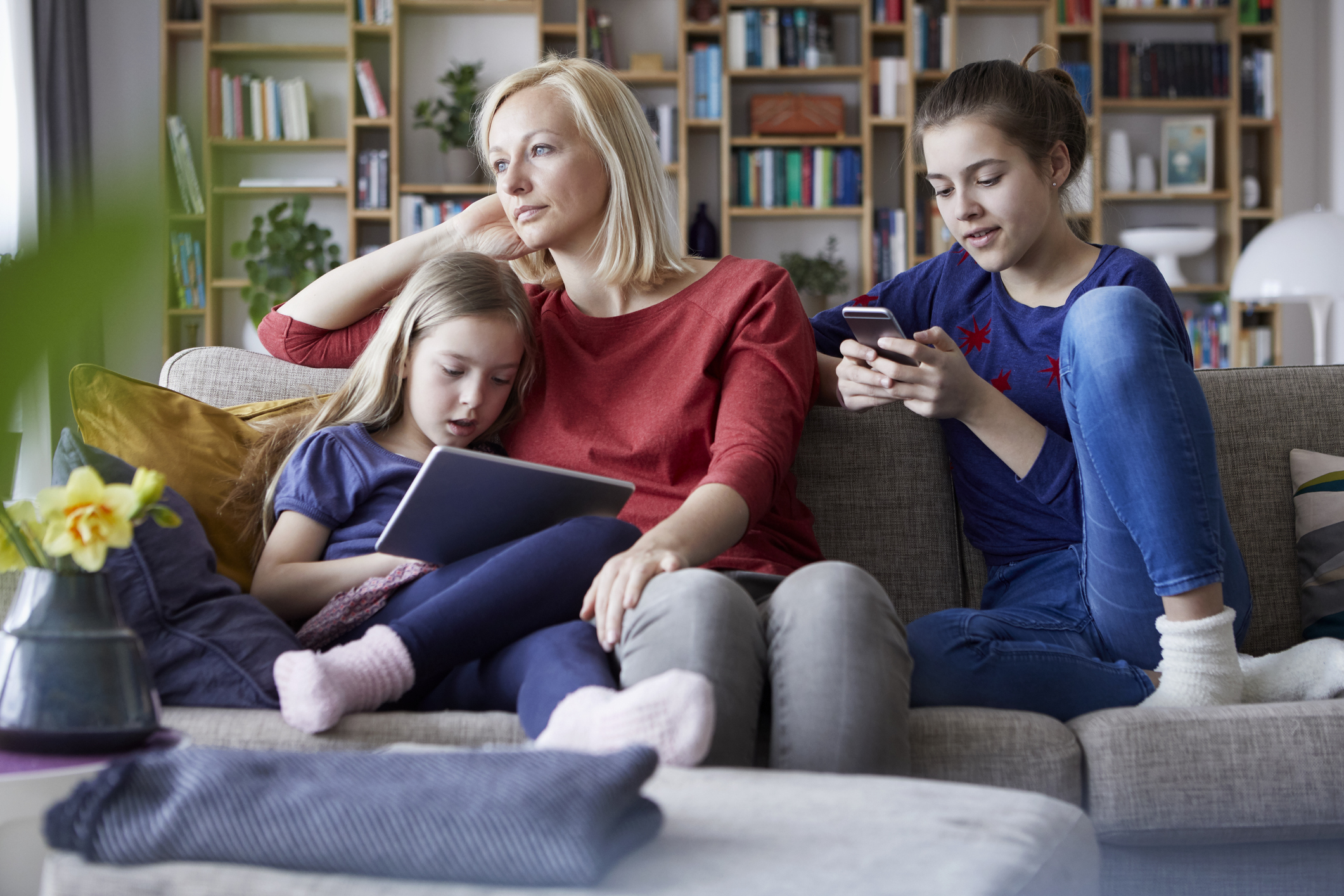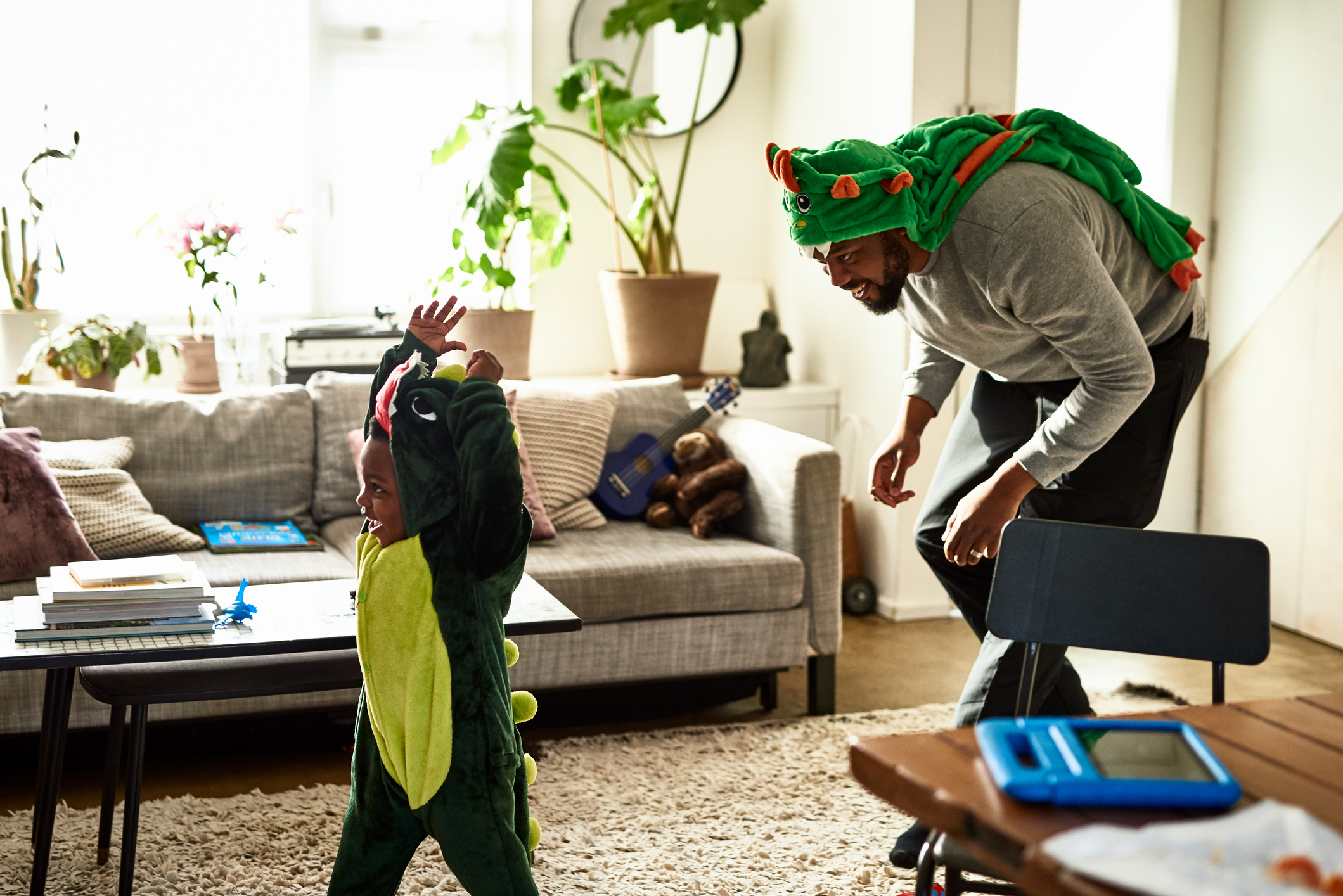
Last night the nation tuned in to watch Prime Minister Boris Johnson's address to the UK, announcing much stricter lockdown measures in order to help tackle the coronavirus outbreak.
An estimated 27 million of us watched as the PM instructed us that were were only to leave our houses for essential food and medicine, if we were a key worker, and to exercise once a day.
He also explained that gatherings of three or more would be dispersed, with police now having the powers to enforce these rules if people were seen flouting them.
But one aspect of the announcement left some families confused.
In the address, Boris explained that you should only see/socialise with people you live with - confirming that you should not have any visitors or visit anyone elses home - unless you were caring for someone elderly or vulnerable.
Of course, the restriction left families with separated parents puzzled - did it mean that children would have to stay put in one household - only seeing one parent for the foreseeable future?
On Twitter, one confused user asked, 'Does anyone know the correct answer to this - can children who's parents are separated move between homes?' Now, there has finally been some clarification.
Parenting advice, hot topics, best buys and family finance tips delivered straight to your inbox.
READ MORE: Best free educational apps for homeschooling
Separated families during coronavirus - should children be moved?
Since Boris Johnson's announcement last night, there has been government confirmation on whether or not children can move between separated parent's houses.
And the answer, put simply is - yes, they can.
Advice on the government website was updated overnight, explaining that children under the age of 18 can be moved between parent's homes during the UK lockdown.
It read, "Where parents do not live in the same household, children under 18 can be moved between their parents' homes."
So, if you share custody of your children with their father or mother, you are able to move your kids under 18 between the two homes.
Natalie Wiles, a chartered legal executive at Langleys Solicitors, explained, "The government have now clarified that it is okay for children to spend time with each parent where there are separate households and that existing arrangements should be maintained. This will no doubt be a huge relief to many families.
"Communication between separated parents is vital in these difficult times. It is important to remember that both parents will usually share Parental Responsibility for any dependent child and that parents should keep each other informed in relation to the health and wellbeing of their children."

She also reinforced that custody agreements should continue to be adhered to - save for circumstances where self-isolation is needed.
"If there is an existing court order in place determining the arrangements for the children then this should be adhered save for circumstances where self-isolation is required. If an order is not adhered to without a very good reason it is possible for an enforcement application to be made to the Court which could result in penalties for the non-compliant parent."
What does immediate family mean?
In his speech, Boris Johnson talked about restricting social contact to that your immediate family only - seeming to point only to the people we live with.
In families where the parents are separated though, that definition becomes a little less clear.
In the case of the coronavirus, government advice is clear that we should restrict social contact as much as possible.
So in this case, immediate family should mean only the people you live with - or, the other parent if your children are under 18.
What if one parent refuses to allow movement, or wants to insist on it?
The CEO of Gingerbread, Victoria Benson, expressed concern over some of the rules set out by government. Gingerbread is a a charity which supports single parent families.
She expressed questions over whether each parent can refuse movement of their children, due to health concerns, or whether parents are allowed to insist open it in the midst of the pandemic.
Victoria told the BBC, "We advise that parents should carefully consider the implications of children travelling between households and the welfare of the child (including the child's health needs) must be the most important consideration.
"The health of other household members may also need to be taken into account. Wherever possible, parents should work together to ensure that a solution can be found. We would welcome further guidance on this from the government."
What about children over the age of 18?
Sadly, it appears the full and complete rules of the lockdown apply to children over the age of 18 in the same way that they apply to every other adult in the UK.
This means that if you and your children's other parent co-parent kids over 18, they will have to stay put in one household, and maintain all other social distancing and lockdown measures in the exact same way that you will going forward.
Children over the age of 18 therefore should not move between each parent's house during this period of lockdown in the UK. According to the government, it is this restriction of movement that is vital to fighting the coronavirus.
What are the rules if a family member has to self-isolate?
Although children within a split family can still spend time at both parent's homes, the rules on self-isolating if symptoms appear remain the same.
If a member of the family - mum, dad, children - starts to present with symptoms of COVID-19 (a high temperature or a new continuous cough) the entire household should immediately begin to self-isolate for 14 days.
So, if a parent the children aren't currently with develops symptoms, the children should not visit that home for 14 days. If the children get ill, they should remain in the home they are currently at for 14 days. And if the children are with the parent who gets ill, they should all stay at that home for 14 days.
How to maintain family relationships during the UK lockdown
The UK lockdown is without doubt going to be tough for everyone, including families who might be separated.
But that doesn't mean that there aren't ways to stay connected during the outbreak.
Relate counsellor Peter Saddington said, urged that maintaining a routine and sense of routine would be vital for children.
He said, “This is going to be a very unsettling time for children so having a routine and keeping things as ‘normal’ as possible will be really important. However, understand that you may need to change your routine depending on the latest government guidelines or other circumstances so be prepared to be flexible.
"If it’s impractical to move between houses, help to make it as easy as possible for your child to maintain contact with your ex."
Peter also explained that it's important to encourage open communication for your little ones - and bigger kids. "Let your children know they can talk to you about any worries they may have – whether that’s about their other parent or about travelling between houses. If children are worried, avoid being dismissive and address their concerns calmly, clearly and with respect," he said.
Amy is Senior Digital Writer across Woman & Home, GoodTo and Woman, writing about everything from celebrity news to health, fashion and beauty features. When she isn't obsessing over the latest dress drop from Marks & Spencer, you'll most likely find Amy out running, or with a cup of tea in hand ready to dive into a gripping new Netflix series.